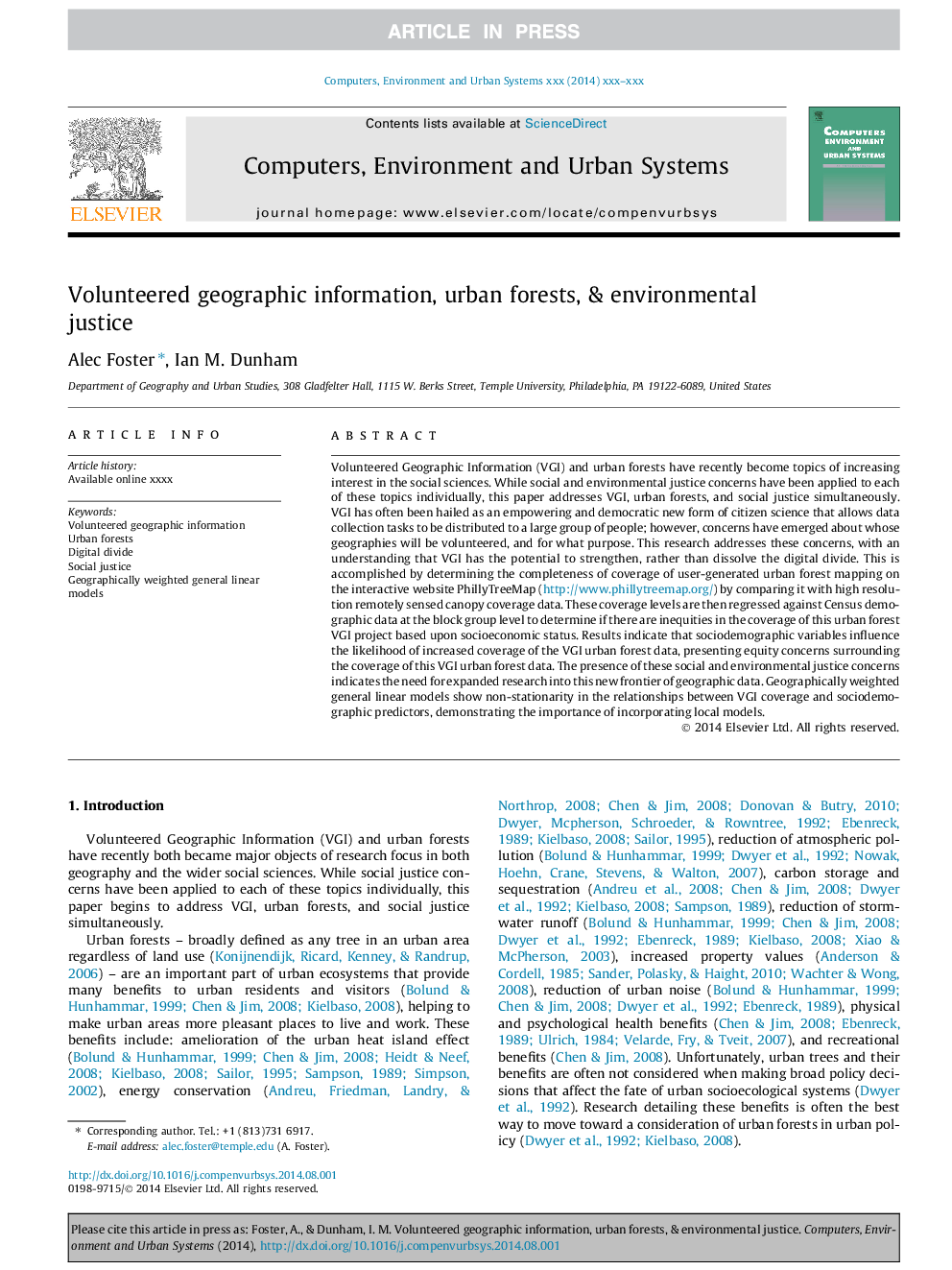| Article ID | Journal | Published Year | Pages | File Type |
|---|---|---|---|---|
| 6921959 | Computers, Environment and Urban Systems | 2015 | 11 Pages |
Abstract
Volunteered Geographic Information (VGI) and urban forests have recently become topics of increasing interest in the social sciences. While social and environmental justice concerns have been applied to each of these topics individually, this paper addresses VGI, urban forests, and social justice simultaneously. VGI has often been hailed as an empowering and democratic new form of citizen science that allows data collection tasks to be distributed to a large group of people; however, concerns have emerged about whose geographies will be volunteered, and for what purpose. This research addresses these concerns, with an understanding that VGI has the potential to strengthen, rather than dissolve the digital divide. This is accomplished by determining the completeness of coverage of user-generated urban forest mapping on the interactive website PhillyTreeMap (http://www.phillytreemap.org/) by comparing it with high resolution remotely sensed canopy coverage data. These coverage levels are then regressed against Census demographic data at the block group level to determine if there are inequities in the coverage of this urban forest VGI project based upon socioeconomic status. Results indicate that sociodemographic variables influence the likelihood of increased coverage of the VGI urban forest data, presenting equity concerns surrounding the coverage of this VGI urban forest data. The presence of these social and environmental justice concerns indicates the need for expanded research into this new frontier of geographic data. Geographically weighted general linear models show non-stationarity in the relationships between VGI coverage and sociodemographic predictors, demonstrating the importance of incorporating local models.
Related Topics
Physical Sciences and Engineering
Computer Science
Computer Science Applications
Authors
Alec Foster, Ian M. Dunham,
